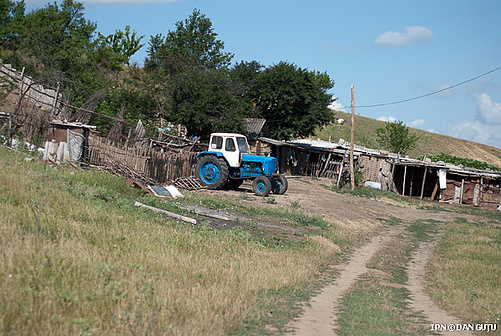---
“Moldovan farmers will not be able to cope with the introduction of EU SPS standards and will lose out.”
The chairman of the Union of Agricultural Producers Associations UniAgroProtect Alexandru Slusari said the Moldovan farmers do not encounter serious problems related to the EU sanitary and phytosanitary standards, which are even less severe than those imposed by Russia. “As we use 2-3 times fewer pesticides in agriculture than the Europeans, I see no problems in this respect. Our biggest problem is that we are 10 years behind in terms of agricultural products sale requirements,” stated Alexandru Slusari.
He noted that the relevant EU requirements are strict. For example, the fruit must be sorted, packed and standardized. “Regretfully, we have few sorting and packing lines. There are only 10-12 such lines in Moldova. That’s why we insisted that agriculture should be classed as a strategic sector for the country’s development because this way we will be able to access European funds, which must be used first of all for improving infrastructure in agriculture. We need to purchase more sorting and packing lines so as to meet the EU standards on agricultural production in several years,” said Alexandru Slusari.
The Association Agreement’s roadmap allows accessing Enpard funds, which are non-reimbursable. Starting with 2015, the Moldovan farmers will be able to receive €17 million in addition to the national subsidies. This is practically twice more than the agriculture subsidization fund for 2015. Alexandru Slusari said that if the agricultural subsidies are doubled, the problem of post-harvest processing of agricultural products will disappear in the next 3-4 years.
“We decide how to distribute this money, but resources will be first of all allocated for modernizing post-harvest infrastructure and for investing in cold-storage facilities, sorting and packing lines,” said the chairman of the Union of Agricultural Producers Associations UniAgroProtect.
According to Alexandru Slusari, Moldova could have accessed Enpard funds in 2013, if agriculture had been declared a key sector of the national economy. “Unfortunately, we went through a political crisis and then, during the next two years, we were unable to make agriculture a priority even if this was a condition imposed by the EU in February 2013. Afterward, the Europeans told us clearly that they can help us. We lost this chance, but Georgia and Armenia already benefit from Enpard funding. We lag behind, but there is no other way out,” he stated.
Alexandru Slusari also said the fact that only the EU imposes product packing conditions is not true. Russia also does not allow the Moldovan fruit to be sold in supermarkets because they are inappropriately packed.
On its website, the EU Delegation to Moldova says the rules on food production, as well as on animal farming will be gradually introduced with the aim of increasing the security and quality of food for consumers and reducing health risks. Small farmers who do not engage in trade or other commercial activities do not have to implement the reforms. Those who sell their products in Moldova, or abroad, will benefit from adequate transition periods in which to prepare for a gradual increase in expectations in terms of the security and quality of farming in their particular sector. For food producers, one of the consequences of the DCFTA will be to increase their revenue by making farming more productive.




